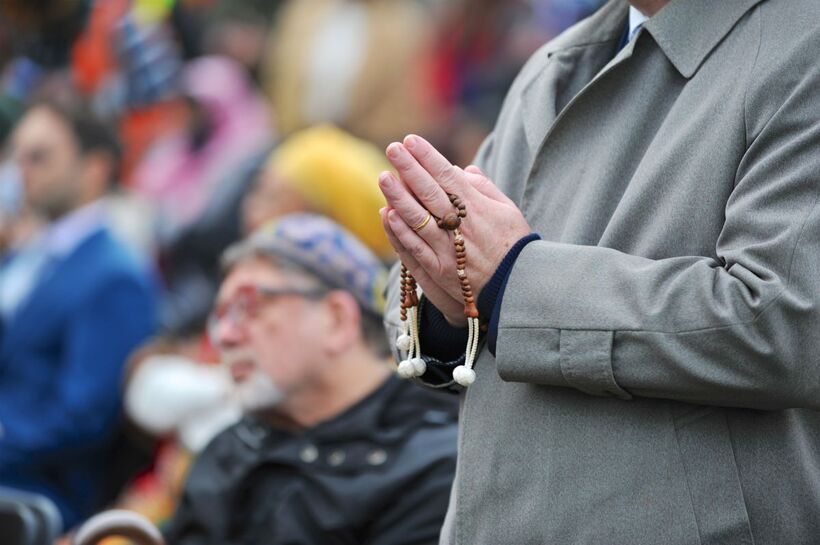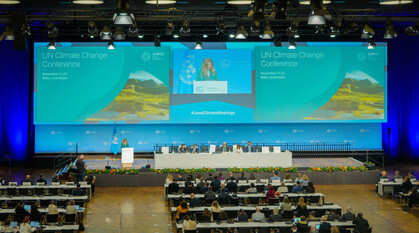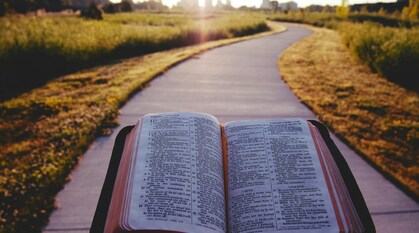Solidarity, friendship and faith in climate justice
The final module of the Exploring Faith and Climate Justice course considers solidarity across movements. Rosh Lal explores what solidarity means in practice for faith communities in the UK who are taking action on climate.

'Solidarity' is a term that is often used in conversations around climate and social justice. We send our solidarity to those suffering on the climate frontline in the Global South, to those who are displaced by extreme weather events and to those protesting fossil fuels projects that will devastate their local environment.
Solidarity has symbolic power. By highlighting the struggles of others, and seeing your own struggle in theirs, we are able to join the dots between the numerous causes of a global crisis.
But what does solidarity look like in practice? To me, Cornel West expresses it best when he talks about justice:
[QUOTE-START]
"Never forget that justice is what love looks like in public."
[QUOTE-END]
If love in public is justice, then for me, solidarity is love in practice. We can not only demonstrate our solidarity symbolically and rhetorically, we can also demonstrate it through our behaviour and actions.
Interfaith partnerships for climate action
These solidaristic actions take many forms. Our contribution to the global Faiths 4 Climate Justice action in 2021 was a beautiful demonstration of interfaith partnership, collaboration and friendship. Together, Avnish Thakrar (Hindu Climate Action), Imam Emad Choudhury (Bahu Trust), Rabbi Jonathan Wittenberg (Masorti Judaism), Olivia Fuchs (Eco Dharma Network), and Bishop Olivia Graham (Church of England) delivered a petition of thousands of signatures to the Prime Minister demanding 'compassionate, loving and just' commitments from the COP26 climate talks.
On the same day, multi-faith activists in Lagos, Nigeria protested oil companies' illegal, heavily-polluting gas flaring. Outside the Paris headquarters of Total Energies, the French multinational oil company, a multi-faith group called on the company to end its support for its East Africa pipeline projects.
[QUOTE-START]
Interfaith partnership is at its foundation a demonstration of friendship.
[QUOTE-END]
In New York City, Jewish youth activists and interfaith allies blockaded the entrance to the headquarters of BlackRock, the world's largest asset manager, which invests billions of dollars in oil, gas, and deforestation projects. At over 20 events across Latin America, religious groups urged governments to end deforestation and protect the rights of Indigenous communities.
Interfaith partnership is at its foundation a demonstration of friendship. Despite many cultural differences, all faith traditions contain teachings that centre on care for the planet and protection for the most marginalised. It's a recognition that we all share a common home and a common fate, and that compassion and justice require a reframing of our relationship between each other, nature and society.
In recognising these shared teachings, loving partnerships emerge. Nowhere has this been more apparent than in the capacity building group Faith for the Climate, which hosted an event at COP26 on the need for interfaith collaboration for climate justice.
Solidarity with those most affected by the climate crisis
This friendship helped produce bold action for Loss and Damage Action Day in 2022, when activists from many faith communities came together to demand that the biggest polluters pay up for climate breakdown. As Olivia Fuchs said of the day:
"We must support people, especially those living in the Global South, who have done least to cause our climate and ecological crisis, and yet who are the ones that are having to suffer the effects of these crises most… We had wonderful conversations along the way and created an amazing sense of solidarity."
Avnish Thakrar adds:
"To help those who are at the frontline of environmental breakdown, richer nations must come together to create an international loss and damage fund by taxing the world's biggest polluters… We heard some moving speeches… urging us to instil love and compassion at the core of our being and immersing ourselves in ahimsa: trying to cause the least harm to all living things."
People of faith recognise that it is only by standing in solidarity with those most adversely affected by the climate crisis – by foregrounding their voices and supporting their demands – that we will see climate justice. That work continues, and its most recent expression includes opposition to Total Energies' EACOP pipeline in East Africa. Climate justice activists are coming together to oppose the pipeline, as well as standing with those on the frontline in East Africa.
As the climate crisis intensifies, we can only weather the storm by building resilient communities centred on compassion and friendship; by seeing ourselves in each other and speaking with those most affected rather than speaking over them.
Despite what cynics may say, these resilient communities can be built across the lines of nationality, culture, language and faith. We must honour the unbreakable bonds of friendship and solidarity that moor us all and illuminate our values.


